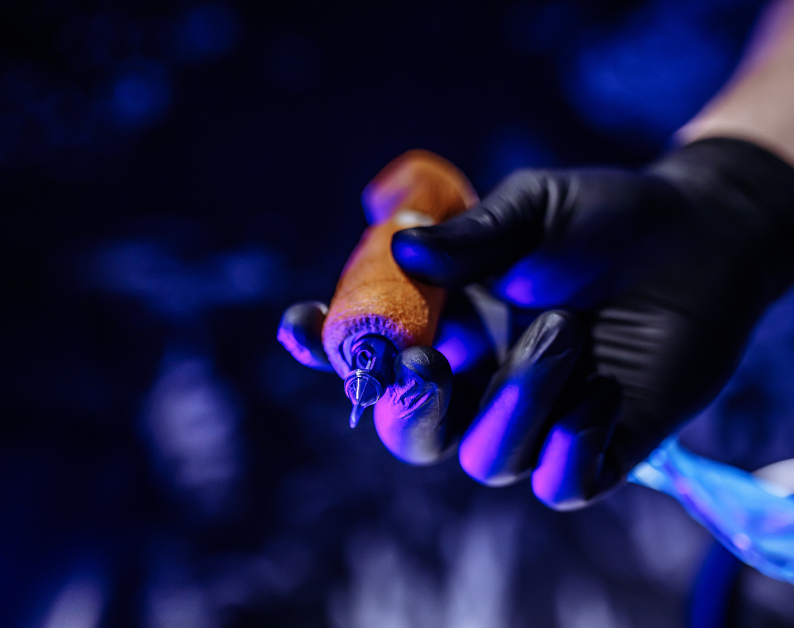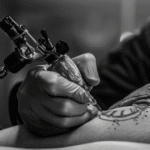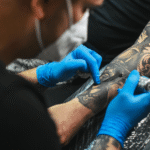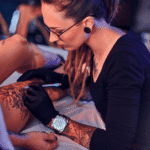When someone decides to get a tattoo, they’re not just choosing art—they’re making a lifelong commitment that requires complete trust in another person. At Tattoo Digital Marketing, we’ve studied the psychology behind how potential clients choose their tattoo artists, and the insights might surprise you.
The decision-making process goes far deeper than scrolling through Instagram portfolios. Clients evaluate multiple psychological and practical factors before booking, and understanding these motivations can transform how tattoo artists connect with their ideal clients.
In 2025, the tattoo industry has evolved dramatically. Clients are no longer settling for cheap, poorly executed work—they’re seeking experts who demonstrate mastery at every level. This shift means artists must understand the psychological triggers that drive booking decisions.
The Trust Factor: Why Safety Comes First
Before clients consider artistic style, they’re evaluating safety and professionalism. When clients walk into a shop, they immediately scan for cleanliness indicators: autoclave sterilization equipment, protective barriers, new needles and gloves, and overall hygiene standards.
This trust assessment happens within seconds and can make or break a potential booking. Clients who feel uncertain about safety often leave without saying anything, making hospital-grade standards crucial for business success.
The psychology here runs deeper than surface-level cleanliness. Clients are subconsciously evaluating whether the artist takes their craft seriously enough to maintain professional standards. A clean, organized workspace signals attention to detail that clients expect to see reflected in the tattoo work itself.
Portfolio Psychology: What Clients Really See
When clients review portfolios, they’re conducting a complex evaluation of artistic consistency and technical skill. They focus on crisp linework, smooth shading, solid color saturation, and the absence of blowouts or fuzzy lines.
Clients are asking, “Can this artist consistently produce quality work?” They seek evidence of mastery and style specialization. Interestingly, many clients prefer specialists who have perfected specific styles over versatile artists, as specialization creates psychological confidence.
The portfolio review process also reveals client anxiety about permanent decisions. They’re looking for reassurance that the artist understands anatomy, can work with different skin tones, and adapts designs to body contours. Evidence of custom work rather than just flash designs signals collaborative ability that many clients prioritize.
The Connection Factor: Beyond Artistic Skill
Tattooing requires hours of physical proximity and conversation. Clients evaluate whether they can comfortably spend extended time with an artist during consultations, assessing communication style, listening skills, and collaborative willingness.
Clients want artists who understand their vision while offering professional guidance. The psychological balance is crucial—clients seek expertise but also want to feel heard and respected throughout the design process.
This is where effective social media marketing becomes essential. When clients observe an artist’s personality and interests through social platforms, they begin forming connections before meeting in person. Artists who share their creative process, interact genuinely with followers, and showcase client relationships build psychological bridges that make booking decisions easier.
Digital Trust Building and Price Psychology
Modern clients conduct extensive online research before making contact. They examine website professionalism, social media consistency, and online reviews. A well-designed website that showcases artwork and client experiences helps build crucial trust.
The absence of a strong online presence creates psychological barriers. When clients can’t find sufficient information about an artist, they often interpret this as unprofessionalism, regardless of actual skill level. Artists need cohesive digital identities that reflect their expertise and reliability.
Contrary to popular belief, serious tattoo clients aren’t seeking the cheapest option. They associate higher prices with better quality and safer practices. However, pricing must align with demonstrable skill. When implementing paid advertising, understanding this psychology helps attract quality clients rather than bargain hunters.
Clients also expect transparent pricing structures. Hidden fees or vague pricing creates anxiety and distrust. Clear communication about deposits, hourly rates, and additional costs builds confidence in the professional relationship.
The Referral and Search Psychology
Word-of-mouth referrals carry enormous psychological weight. When someone recommends an artist, they’re providing social proof that transcends marketing. Clients think, “If this person trusted this artist and loves the result, I probably can too.”
The psychology behind referrals involves trust transfer and risk reduction. Successful artists understand this and create experiences that naturally generate referrals through exceptional service, comfortable environments, and impressive results.
Understanding search psychology helps optimize SEO strategies effectively. Clients use specific qualifiers like “best,” “clean,” “professional,” or style-specific terms. Local searches are particularly important as clients want accessible artists for ongoing relationships.
Search behavior also reveals client priorities. Terms including “safe,” “licensed,” or “reviews” indicate trust-focused clients, while style-specific searches suggest consumers who know what they want and seek specialists. Understanding these patterns helps artists create content that matches client mindsets.
Creating Psychological Comfort for Bookings
Successful tattoo artists understand that booking decisions are fundamentally emotional. They create environments that address client concerns while building confidence and excitement.
Their work involves maintaining spotless shops, transparent communication, showcasing client satisfaction, and demonstrating ongoing education. When clients feel psychologically comfortable and confident about their choice, booking becomes natural rather than stressful.
The psychology of choosing ink reveals that clients seek partners in creating meaningful, safe, and professionally executed body art. Artists who understand these psychological factors build thriving practices based on trust, satisfaction, and referrals.
Ready to understand what your clients really want and optimize your booking process? Schedule a consultation with our team to discover how we can help you connect with clients on a deeper psychological level and grow your tattoo business.













